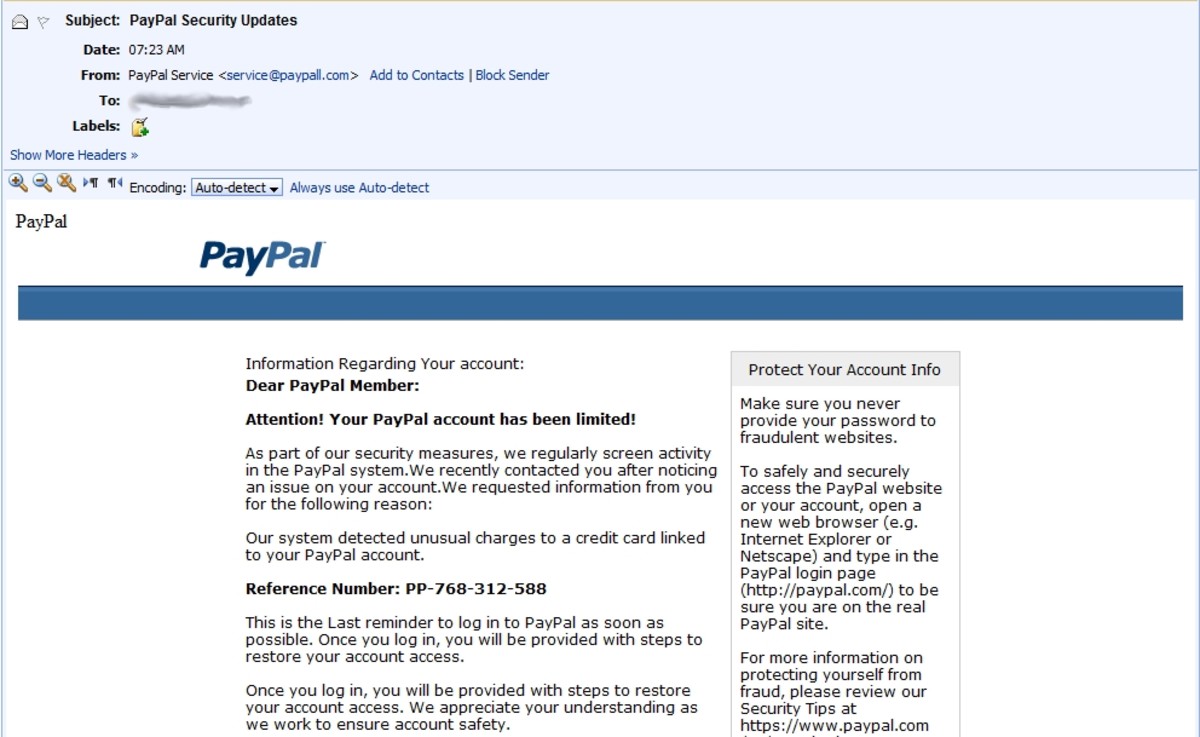Phone Scammers – The Snake Oil Salesmen Of Our Time

History throughout the world has been replete with scammers and con artists; it’s a fact of life, unfortunately, that there will always be those who prey upon the hapless masses.
Back in the wild, wild west infamous “snake oil salesmen” preyed on the unsuspecting to buy their useless “miracle health tonics,” and even the great 1800’s showman P.T. Barnum lured the unsuspecting patrons of his museum prematurely out its exit with an alluring and underhanded sign that stated "This Way to the Egress." It’s been said that a sucker is born every minute, and as the times have changed, the scams have evolved to continue to take advantage of them, sadly; the newest is, oddly enough, one of the least surprising- the phone scam, where strangers will call up unsuspecting folks and attempt to wrangle what they want out of them.
The latest and – the uninformed – one of the most effective scams in recently memory is the rampant onslaught of phone scams that often take advantage of just how quickly people will react when faced with an immediate – and, unbeknownst to them, completely fabricated – crisis situation. According to the Federal Trade Commission, the goal of a phone scam artist is to catch their prey – often chosen completely at random – off-guard, and keep them that way until they get what they want, be it money or personal information.
“Often, scammers who operate by phone don’t want to give you time to think about their pitch; they just want you to say "yes." But some are so cunning that, even if you ask for more information, they seem happy to comply,” they said. “Everyone's a potential target. Fraud isn't limited to race, ethnic background, gender, age, education, or income. That said, some scams seem to concentrate in certain groups. For example, older people may be targeted because the caller assumes they may live alone, have a nest egg, or may be more polite toward strangers.”
Deceit, confusion, and distress are the calling card of any accomplished phone scammer. An especially popular con that it being run these days plays upon the strongest fear most Americans have- fear the Internal Revenue Service (IRS); who hasn’t felt a little pang of paranoia every year come tax time, after all? These scammers relish in that fear, and often call total strangers pretending to be IRS agents out to “get” people who may owe the government money (often threatening jail time of pretend “back taxes” aren’t paid immediately), and just hearing those fearsome initials spoken to them over the phone – IRS – is enough to frighten almost anyone into compliance, despite the fact that the real IRS would never contact a citizen via the phone, let alone demand any sort of payment; any contact regarding financial issues would come via official mail only.
“Victims are told they owe money to the IRS and it must be paid promptly through a pre-loaded debit card or wire transfer. If the victim refuses to cooperate, they are then threatened with arrest, deportation or suspension of a business or driver’s license. In many cases, the caller becomes hostile and insulting,” the IRS said in a recent effort to combat this growing scam. “Rest assured, we do not and will not ask for credit card numbers over the phone, nor request a pre-paid debit card or wire transfer. If someone unexpectedly calls claiming to be from the IRS and threatens police arrest, deportation or license revocation if you don’t pay immediately, that is a sign that it really isn’t the IRS calling.”
Other scams involve informing the victims that they have won an unexpected prize, or that a family member is in need of assistance, of that they have a surprise windfall from another country; these are all attempts to either get the unwary to send money in the form of a wire transfer or money order to the con artist, or to acquire personal information that can be used against the victim at a later date. It cannot be stressed enough that if a stranger calls offering or asking for money, you should hang up without a second thought; don’t even engage with the caller, even if you know it’s a con job and you just want to have fun with them.
The newest phone scams are exclusively targeting wireless cell customers; The Federal Communications Commission (FCC) has begun issuing warnings, urging the public to be wary of any unusual calls they may receive on their smartphones, as they may be a part of an international effort to part them from their hard-earned money is a rather unexpected manner.
“Some wireless consumers receive calls from phone numbers with three-digit area codes that appear to be domestic, but are actually associated with international pay-per-call phone numbers. These calls often disconnect after one ring, not giving the consumer time to answer the call and tempting them to return the call,” they said. “If you return the phone call, you may be connected to an international hotline than can charge a fee just for connecting, along with significant per-minute fees if they can keep you on the phone. These charges may show up on your bill as premium services. If you receive a call like this and do not recognize the number of the incoming call, do not return the call.”
Testing to see if a phone number is legitimate is another good idea; sometimes simply typing a suspicious number into Google will yield helpful results, as is entering said phone number into a comprehensive national phone white and yellow database, such as Yellow Pages Goes Green. This is a great way to ascertain if a phone number is originating from a legit source, or someplace shady.
Unfortunately, even the author of this article has been involved in one of these scams; no, not me personally, but my sister. One morning, while working in my home office, I received a phone call from my sister, and when she had ascertained that I had not, in fact, been kidnapped, she informed me that she was on the other line with a “gentleman” that had claimed that he was holding me hostage at gunpoint after a motor vehicle accident, and that if my sister didn’t wire him ransom money, bad things would most likely happen to me. This, of course, was completely untrue; I was home, safe and sound the entire time.
It turns out, according to local police, that these con artists just call random local phone numbers and ask whoever answers the phone if they have a brother; if they answer yes, the fishing for information begins, and eventually the ransom demand is made. Luckily, my sister had the presence of mind to call me first, after which she hung up on the scammers. Sadly, a call to police afterwards yielded no satisfaction, as we were informed that noting could be done unless money had actually changed hands.
Phone scams are a growing trend in America, perpetrated by unscrupulous individuals to rely on a person’s confusion and compassion; however, a simple –and effective – defense is simply to hang up on any call that seems even remotely fishy in any way, shape or form. It’s all common sense, really, and if you exercise it on a regular basis, you’ll do okay…at least, until a new and improved scam comes along! These are frightening times indeed.








